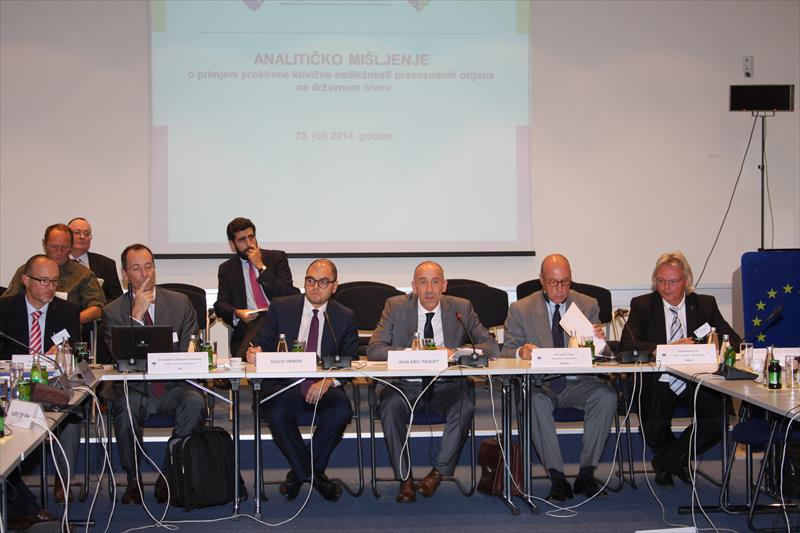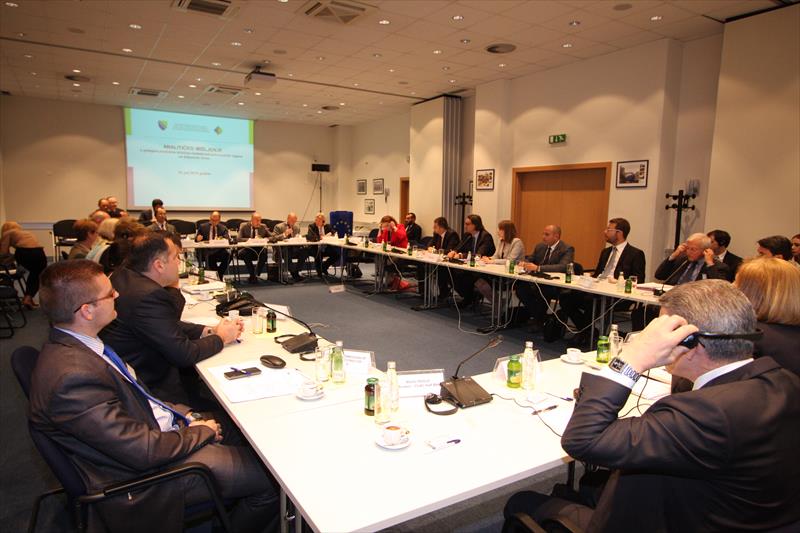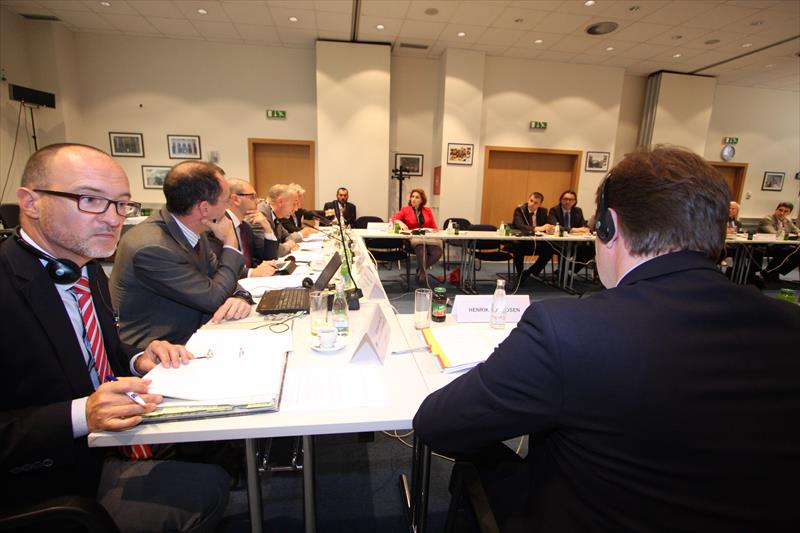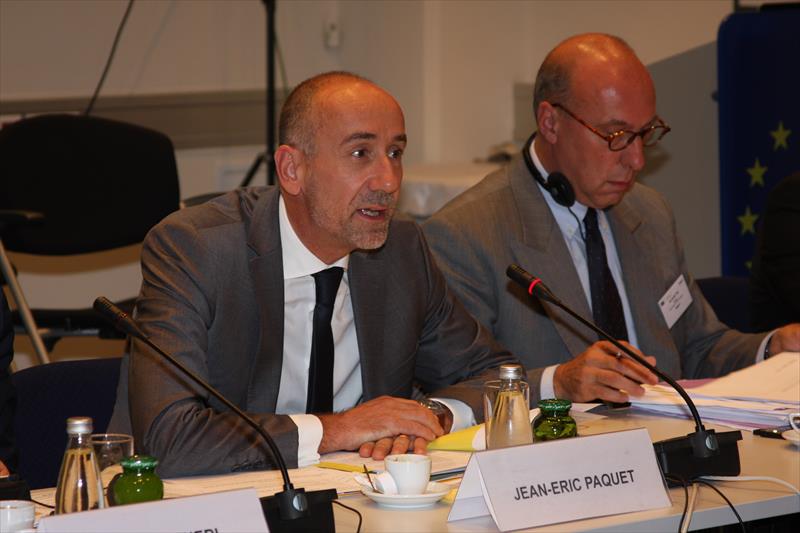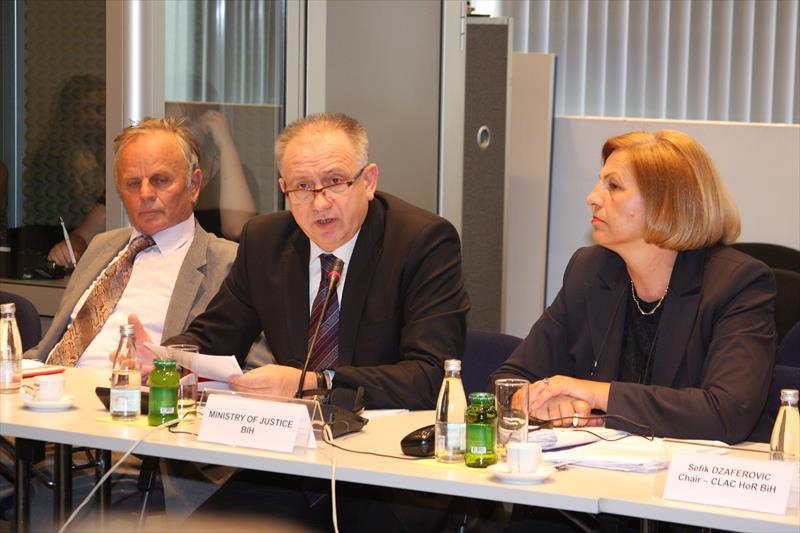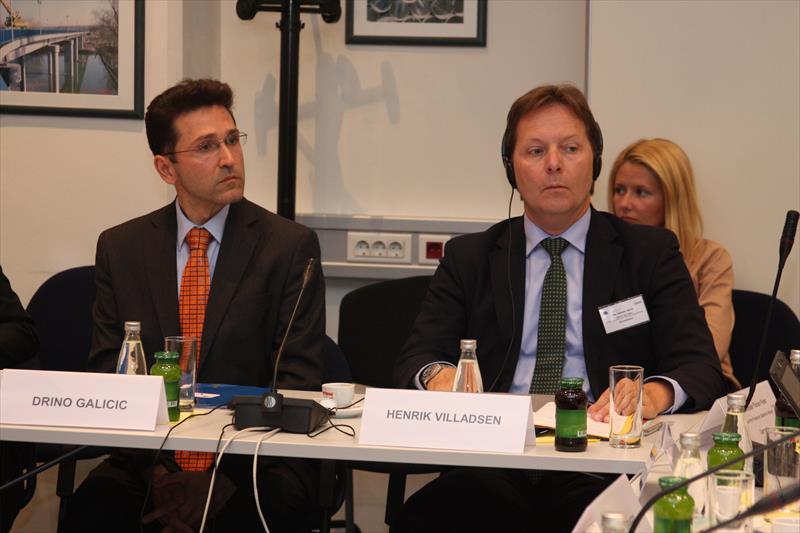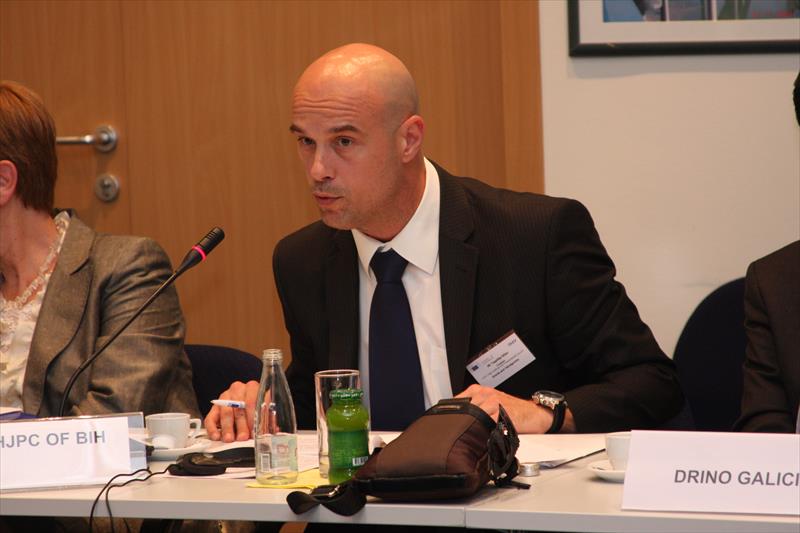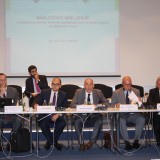A seminar on the extended criminal jurisdiction of the state level judiciary started on July 23 in the premises of the EU Delegation to Bosnia and Herzegovina. The extended criminal competences provide to the state level judiciary the possibility, under certain conditions, to assert jurisdiction for crimes defined in the Brčko District and Entities’ criminal legislation.
The opening meeting was co-chaired by the BiH Minister of Justice, Bariša Čolak, and Western Balkans Director at the European Commission, Jean-Eric Paquet. A three-day TAIEX-sponsored legislation review exercise was undertaken in the framework of the “EU-BiH Structured Dialogue on Justice and additional Rule of Law matters” as yet another opportunity for all relevant actors to engage openly in the draft package reform of the state level judiciary, particularly in the field of criminal jurisdiction. Relevant members of the BiH Parliament were also in attendance.
A team of four senior experts from EU member states worked with relevant practitioners and representatives from line ministries at all levels, discussing the issue of extended criminal jurisdiction of the state level judiciary. The EU selected the relevant experts from member states (Germany, Belgium, Italy) to provide advice on the distribution of criminal jurisdiction across various levels of authority and different instances. The team of experts includes: Eric Bisschop, Deputy Chief Federal Prosecutor of Belgium, also Head of the Organized Crime Unit at the Federal Prosecutor’s Office and National contact point for anti-corruption; Ferdinando Buatier De Mongeot, judge for preliminary investigations in Italy, who has also served as international judge in EULEX Kosovo, where he adjudicated war crimes and other serious crimes; Theo Jacobs, Director of the Central Office for Seizure and Confiscation of Belgium, previously Head of the Rule of Law section at the EU-mission in the Occupied Palestinian Territories, justice expert in the EU Planning team for Kosovo, as well as Chief EULEX Prosecutor; and, Florian Schlosser, currently serving at the Office of the Prosecutor General in Munich as expert for Mutual Legal Assistance in Criminal Matters, Extradition cases and as Contact Point for the European Judicial Network (EJN)/National Correspondent for Eurojust.
The team of EU member state experts engaged in a round of technical bilateral meetings. A final seminar session took place on July 25, again in the EU House in Sarajevo. In conclusion, the European Commission services delivered a set of official conclusions and operational suggestions to the competent authorities. These are expected to facilitate the finalisation of the state level judiciary reform, which still remains amongst the core priorities of the EU-BiH Structured Dialogue on Justice and additional Rule of Law matters.
Since the Structured Dialogue was launched, several tools have been used to assist the BiH Ministry of Justice in its efforts to find an appropriate compromise on the reform of the extended criminal competences of the state level judiciary. A first TAIEX Seminar on natural law and legal certainty was held last year and targeted recommendations already issued on that occasion. When the draft reform package advanced, the draft legislation was also assessed by the Venice Commission, which issued an opinion in June 2013. This was followed by a thematic plenary of the Structured Dialogue in Brussels, also in the presence of the Venice Commission Secretary. Pursuant to the Structured Dialogue recommendations issued at the latest plenary session (May 2014), an analytical opinion on this matter was adopted by the HJPC on the jurisprudence Art. 7.2 (July 2014).

